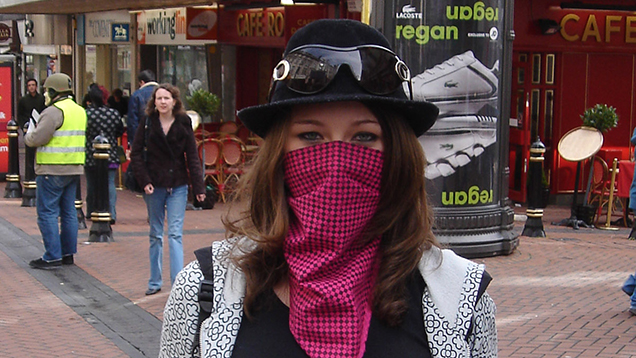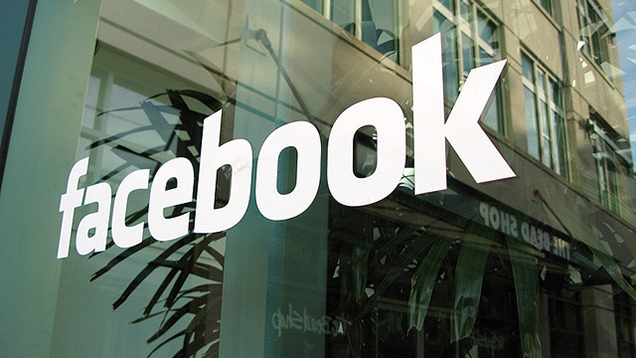Facebook has always had a policy of requiring users to supply their real name on the site. Enforcement has been lax, but there’s still a risk of getting caught. Here’s how to fly under the radar if you need to.
Pictures: Martin Poulter, David Goehring, Marco Paköeningrat.
It should be noted that what we’re discussing is technically against Facebook policy. It doesn’t break any laws to use a pseudonym online, but getting caught with a fake name can result in having your profile banned or deleted. Until Facebook changes its policies, this is the risk you run.
We also can’t guarantee what kind of name you can use. We’ll talk about the red flags and how to avoid them, but if you have a particular name (such as a stage name or chosen name that’s not yet made legal), we can’t promise you’ll get to use that specific one without getting flagged. Again, we’re operating in the grey area of Facebook policy, so there’s only so much that can be done without changes on Facebook’s end.
Why You Might Want a Fake Name

There are a number of different reasons why you might want to use a fake name in spite of Facebook’s policy. While Facebook does not have an option that accommodates these reasons, it’s not hard to imagine why an exception might be made:
- You want to avoid a stalker. Using your real, legal name means you can be identified more easily. Whether you want to use a variant of your real name or a pseudonym altogether, avoiding your legal name also allows you to stay away from search results.
- You want to change your name but can’t legally do so yet.
- You want to distance yourself from a past relationship. Changing your surname upon getting married is fairly common. However, returning to an old name after a divorce is not always painless. While you may still be able to get it done, having your ex’s name attached to your profile just because your licence still says so can be emotionally troubling.
- You want to use a stage name or pseudonym. Members of the theatre, transgender, drag queen and plenty of other communities frequently employ stage names, assumed names or some other form of alternative identity for their daily lives. While Facebook has a “Page” system that allows alternative names, they’re severely limited for personal communication. Someone who goes by an alternative name in daily life may still prefer to be called by their assumed name even for a personal profile, regardless of what their ID says.
There are surely other reasons why someone might want to use a fake name, but it all tends to boil down to choice. And a lot of paperwork. The legal ability to change a name is not always as fluid as identity itself is, so it makes little sense for a social network to have the same legal requirements. At least not without a method of seeking an exception.
How Fake Names are Flagged and Targeted

First, it’s helpful to discuss how fake names are flagged by Facebook’s internal systems. There are several methods by which a name might send up red flags:
- Automated systems: Facebook has systems that crawl profiles, looking for fake names. While we don’t know exactly what criteria they search for, something is looking. These computers likely catch many spammers and bot accounts that follow easily-defined patterns.
- User reports: Any user can flag another account as using a fake name. While this may not result in an immediate deactivation, it’s at least reviewed by the last method of finding fake names.
- Facebook investigators: While this is likely a second-tier system designed to review the red flags from the previous two methods, an employee at Facebook can look at a profile, mark it as using a fake name, and have it pulled.
In short, we don’t know exactly what criteria Facebook uses, but we can guess that it’s some combination of automated systems and actual people looking for certain violations. We can use that to at least help understand how to avoid getting spotted.
How to Avoid Getting Red Flagged

The following tips are gathered from speaking with a number of people who use pseudonyms online (who, for obvious reasons, would like not to be named) as well as what can be reasonably inferred about Facebook’s systems. Unfortunately, they don’t fix any underlying issues with Facebook policy, but as a method of avoiding detection and getting your profile shut down, they should at least help somewhat.
Separate Out Public and Private Identities
Some people who use fake or stage names may do so because they have a public persona they want to maintain. Part of the reason Facebook is so strict about its fake name policy is because it believes you already have a method of using a stage name: a Page. While this is an extremely limited form of Facebook compared to a profile, it’s useful for publicity.
If you’re using a stage name, create a Page with the name you want to use in addition to your personal profile. Save the personal profile for people you know directly, are related to, or communicate with regularly. For your fans, events and self-promotion, try to use the Page as much as possible. You can use Pages that have the same name as your private profile (I do), so this separation can help reduce red flags. Particularly because of the next reason.
Lock Down Your Privacy Settings
Put simply, increased exposure to people you don’t know increases the chances that you will get red flagged by a user. If you have a couple thousand “friends” attached to your profile, there’s no way to keep up with their reactions to things. For private, personal sharing, lock your profile down.
You can check out our guide here on how to keep your profile on lockdown. You can also use lists and per-post privacy settings to make sure that a particular post is only visible to the people you want to see it. If you have stalkers that are trying to locate you, making sure that all your posts and photos are only visible to specific people. That way, even if a stalker manages to find your profile, unless you give their profile explicit permission to see your posts, they won’t.
Choose Your Name Carefully
If you’re a public personality or you’re choosing a specific name as a personal self-expression, this section may not be helpful to you, but it’s at least worth knowing. For those creating fake identities to conceal their real ones, try to make names that sound typical without being outlandish or obviously fake.
“John Smith” is perhaps the most obvious-sounding fake name. By the same token, it’s unlikely that a person’s driver’s licence reads “Dudebro McFancybutt69”. As a matter of policy (as well as pragmatism), Facebook will not ask you to prove your identity unless it’s challenged. If a name sounds like something that would raise your eyebrow if you saw it on an official form of ID, it’s probably not a good idea to use it as your Facebook name.
Avoid Behaviour That’s Likely to Get You Reported for Other Reasons
This is another tactic that may be a little unfair to you. However, if you’re trying to avoid detection because of a fake name, it’s probably not a good idea to post pictures of pornography or visit every one of your friend’s profiles and trash their mother.
That doesn’t necessarily mean that you have to be on your best behaviour all the time and never do anything controversial. It’s more about knowing your audience. If you limit the number of people who can see your profile or posts, and you know that a particular list of people will appreciate your controversial artwork, by all means share it. However, if you have the entire congregation of your church added on Facebook, it may not be prudent to let them see your erotic drawings of the Muppets.
Reach Out to Facebook
Let’s be completely honest: this is a raw deal for people who want to use pseudonyms. While arguments can be made about personal identity and self-expression, the fact remains that for some people, keeping your real name hidden is a matter of personal safety. And Facebook doesn’t exactly have the best track record for consistent, reliable privacy settings.
That being the case, requesting that pseudonyms be allowed on Facebook officially is your best course of action. All of the above tips help you fly under the radar, but they don’t fix the policy. You can find places to provide feedback to Facebook here.

Comments
7 responses to “How To Use A Fake Name On Facebook Without Getting Flagged”
I have friends who have been using names like that for years. I always got the impression that they didn’t really put any effort into enforcing this unless you were doing something wrong.
I have a friend named Froggybee Doggy. I don’t think they police this one very well.
10 bucks to who ever can register the name “biggus dickus”
https://www.facebook.com/Ratn.kumar007?ref=ts&fref=ts
That’s a page, not a profile. Profiles are where they enforce ‘real-name’.
That said, my profile? Not using a real name. Haven’t for years. Everyone knows who it is as soon as they see it, but harder to just randomly find me through a search.
And just how, exactly does one “reach out” to Facebook? With nearly 2 billion users, an individual is lost to their systems.
WARNING TOTALLY AWESOME LIFEHACK INCOMING… if its a matter of safety then just don’t go posting to the world on Facebook… solved.
I suggest we all flag everyone. That’s right, just inundate FB with flags for every user. Just in time for the mass exodus to Ello.
I believe blocking (and possibly reporting) pages or users can also get a pseudonym noticed.